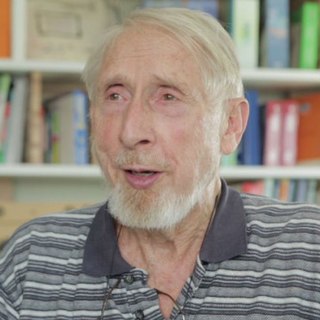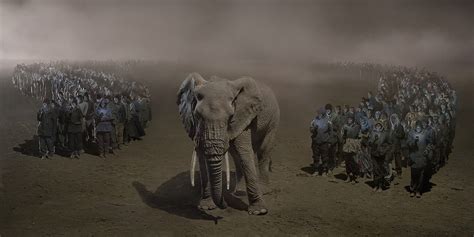A Quote by Aung San Suu Kyi
As the twentieth century draws to a close it has become obvious that material yardsticks alone cannot serve as an adequate measure of human well-being. Even as basic an issue as poverty has to be re-examined to take into account the psychological sense of deprivation that makes people feel poor.
Related Quotes
It is said that peace is the basic tenet of all religion. Yet it is in the name of religion that there has been so much disturbance, bloodshed and persecution. It is indeed a pity that even at the close of the twentieth century we've had to witness such atrocities because of religion. Flying the flag of religion has always proved the easiest way to crush to nothingness human beings as well as the spirit of humanity.
Gossiping has become the main form of communication in human society. It has become the way we feel close to each other, because it makes us feel better to see someone else feel as badly as we do. There is an old expression that says, 'Misery likes company,' and people who are suffering in hell don't want to be all alone.
The greatest achievements in the science of this [twentieth] century are themselves the sources of more puzzlement than human beings have ever experienced. Indeed, it is likely that the twentieth century will be looked back at as the time when science provided the first close glimpse of the profundity of human ignorance. We have not reached solutions; we have only begun to discover how to ask questions.
We have imagined ourselves a special creation, set apart from other humans. In the last twentieth century, we see that our povertyis as absolute as that of the poorest nations. We have attempted to deny the human condition in our quest for power after power. It would be well for us to rejoin the human race, to accept our essential poverty as a gift, and to share our material wealth with those in need.
Today's Uncle Tom doesn't wear a handkerchief on his head. This modern, twentieth-century Uncle Thomas now often wears a top hat. He's usually well-dressed and well-educated. He's often the personification of culture and refinement. The twentieth-century Uncle Thomas sometimes speaks with a Yale or Harvard accent. Sometimes he is known as Professor, Doctor, Judge, and Reverend, even Right Reverend Doctor. This twentieth-century Uncle Thomas is a professional Negro -by that I mean his profession is being a Negro for the white man.
Well, you can do whatever you want, but just don’t call it inequality. Put the word poverty there. Because we have many rich people on our board, and when they see the word poverty that makes them feel good, because [it means] they’re really nice people who care about the poor. When they see the word inequality it makes them upset, because [it means] you want to take money from them.
When common sense sees a puzzling phenomenon it looks for a causal agent. When it sees organization it looks for an organizer. This works amazingly well for purposes ranging from the diagnosis of diseases to the creation of governments. But it cannot account for emergence ... the appearance of complex phenomena not predictable from the basic elements and processes alone.
I think that part of being human is being alone, and being lonely. I think one of the stresses on a lot of our friendships is that we require the people we love to take away that loneliness. and they really can't. And so, when we still feel lonely, even in the company of people we love, we become angry with them because they don't do what we think they're supposed to. Which is really something that they can't do for us.
I want to get a real sense of intimate connection with each of the animals - with that particular lion or elephant in front of me. I believe that being that close to the animal makes a huge difference in the photographers ability to reveal its personality. You wouldn't take a portrait of a human being from a hundred feet away and expect to capture their spirit; you'd move in close.




































